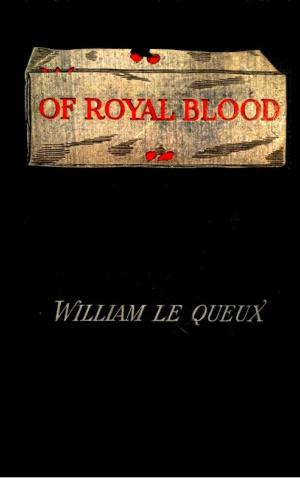| Author: | Brad Jones | ISBN: | 9780991007769 |
| Publisher: | Cincinnati Book Publishing | Publication: | July 4, 2014 |
| Imprint: | Language: | English |
| Author: | Brad Jones |
| ISBN: | 9780991007769 |
| Publisher: | Cincinnati Book Publishing |
| Publication: | July 4, 2014 |
| Imprint: | |
| Language: | English |
“With these wars...there is no rear. The enemy is everywhere... mixed into the population. In front of you. Beside you. Behind you. Persistent exposure to danger.” Brad Jones, a Marine veteran of the Afghanistan War, introduces readers to Corporal Quince Magowan, a young man whose patriotism inspires him to serve his country. For Quince, fighting in his generation’s war proves to be more than just a physical battle. He and the Marines of 2nd Platoon face a seasoned enemy. The rapids of the Kunar River, lush fields, majestic mountains, and the beauty of the blood-red poppies provide a strangely serene backdrop for the horrors of war. When he returns home to his wife and young daughter, Quince faces a harsh adjustment to civilian life. Though healthy by all appearances, darkness has trapped him, and he doesn’t believe that anyone can understand his anguish. Though he is reluctant to admit these struggles, his tough yet compassionate father—a Vietnam veteran—persuades Quince to seek treatment at the VA hospital, where doctors diagnose him with Post-Traumatic Stress Disorder (PTSD). Quince finds that the path to healing is complicated and difficult, but persists with the support of those he loves. This is a compelling story of America’s challenges in treating its veterans for the invisible wounds of modern warfare. Brad Jones is a former Marine Captain who served in the 1st Battalion 6th Marines and in the 6th Marine Regiment. A Kentucky native, he resides in Lexington. Black Walls Turn Gray is a work of fiction in which Jones draws upon life experiences to develop the narrative. His lyrical descriptions of the landscapes of both Kentucky and Afghanistan are personal and evocative.
“With these wars...there is no rear. The enemy is everywhere... mixed into the population. In front of you. Beside you. Behind you. Persistent exposure to danger.” Brad Jones, a Marine veteran of the Afghanistan War, introduces readers to Corporal Quince Magowan, a young man whose patriotism inspires him to serve his country. For Quince, fighting in his generation’s war proves to be more than just a physical battle. He and the Marines of 2nd Platoon face a seasoned enemy. The rapids of the Kunar River, lush fields, majestic mountains, and the beauty of the blood-red poppies provide a strangely serene backdrop for the horrors of war. When he returns home to his wife and young daughter, Quince faces a harsh adjustment to civilian life. Though healthy by all appearances, darkness has trapped him, and he doesn’t believe that anyone can understand his anguish. Though he is reluctant to admit these struggles, his tough yet compassionate father—a Vietnam veteran—persuades Quince to seek treatment at the VA hospital, where doctors diagnose him with Post-Traumatic Stress Disorder (PTSD). Quince finds that the path to healing is complicated and difficult, but persists with the support of those he loves. This is a compelling story of America’s challenges in treating its veterans for the invisible wounds of modern warfare. Brad Jones is a former Marine Captain who served in the 1st Battalion 6th Marines and in the 6th Marine Regiment. A Kentucky native, he resides in Lexington. Black Walls Turn Gray is a work of fiction in which Jones draws upon life experiences to develop the narrative. His lyrical descriptions of the landscapes of both Kentucky and Afghanistan are personal and evocative.















